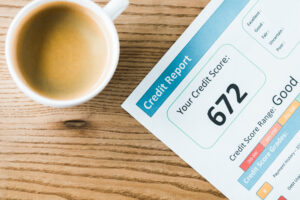By budgeting as a Christian family, you’ll be displaying the importance of bringing God into the center of your finances to your children.
Christian financial planning differs considerably from how society at large handles money. You will need to think differently to guide your family into alignment with Christian financial principles.
Where Budgeting As A Christian Family Differs
When finding how to bring God into your finances, some general ideas are clear.
We should focus on being generous, and serving others. Take care to be responsible with our abundant blessings. Living humbly and within our means, avoiding accumulating debts, and being diligent in business are all a part of managing our money Gods way.
A cornerstone of Christian Financial Planning involves an emphasis on family and faith. In placing our focus on family, rather than material objects, we also have the opportunity to bring our family into the conversation of money. We can also define our treasures as a family. This helps us understand what each family member truly values.
Fulfilling these responsibilities may seem like a tall order, but it’s worth it! These guidelines will help keep your finances under control. One look at the financial crisis so many are facing today speaks volumes. In some cases (surely not all!) the financial difficulties people face—even those caused by a pandemic—may have been avoided with careful Christian financial planning.
Involving Your Family In Your Christian Budget
Budgeting is an invaluable financial skill that can help anyone stay out of debt and live within their means.
It will make it much easier to manage your finances to tithe or give, and pay your bills on time. You’ll be able to plan for upcoming expenses and save for future needs. If you don’t know how to start to bring God into your finances by creating a Christian budget, here is a great resource just for you. While often overlooked, it can also be a valuable part of a young person’s Christian financial education.
The Bible states that ” Now it is required that those who have been given a trust must prove faithful.” (I Corinthians 4:2). We are stewards over what God has entrusted to us. If we learn to be faithful with what God has given us today, He will entrust us with more (Matthew 25:21).
Start the Conversation Early
Teaching your children how to budget does not necessarily need to wait until they have a big upcoming purchase like a car or college books.
It can begin at a very young age by promoting taking stock of what they have, and with self-moderation of treats and toys. Halloween is a great time to teach young children how to budget. Challenge them to see how long they can make their Halloween candy last. It is also a chance to discuss value.
As your children get older, consider offering an allowance. Be mindful and spend time sitting down to help them create a budget for their allowance. This is precisely how you budget as a Christian family. It starts with a conversation and an example. This is a great way to start the conversation about money and help your children learn how to manage their money properly. Encouraging tithing or other giving on their budget impresses their at a young age.
You can even encourage them to start a small business.
Our seven-year-old son has had a great time offering lawn care to folks in our neighborhood. He was thrilled to earn nearly $100. He is taking his time to decide what to do with his money. How much to give, where to give it, and how much to save have all made for great conversations. It has been a wonderful experience for him and us, and we’ve had a great time meeting new people in our ‘hood.
Conversations about Budgeting as a Christian Family
One of the most powerful things you can do to encourage good money habits in children is to have open conversations.
 Allow them to ask questions. Speak candidly, but in ways that they will relate. Tell them about your own struggles to the extent you are comfortable. Very few people go through life financially unscathed. That’s why there are several Christian debt relief programs for people who are struggling. Discussions won’t eliminate struggles entirely. Instead, they will help them know they have someone to talk to when trouble comes along.
Allow them to ask questions. Speak candidly, but in ways that they will relate. Tell them about your own struggles to the extent you are comfortable. Very few people go through life financially unscathed. That’s why there are several Christian debt relief programs for people who are struggling. Discussions won’t eliminate struggles entirely. Instead, they will help them know they have someone to talk to when trouble comes along.
Even consider involving others. Multigenerational conversations about money can be fascinating! Financial concepts change over time. Seeing how these lessons are interpreted by our young ones can be a wonderful experience for all.
Leading By Example
As a parent, you will be more successful in teaching your teen or young person to bring God into your finances if you follow the concept yourself.
Your example of diligently displaying your Christian financial planning in action will pave the way for your children to follow. For teens, budgeting should be encouraged for any form of income to include allowances, income from part-time jobs, gifts, etc. Through budgeting, your teens learn how to prioritize their spending and plan ahead so they, too, can bring God into their finances, serve others, and be successful themselves.
You and your children can always trust the “God” factor to come through in your lives when you are diligent to follow the financial principles in His Word.







